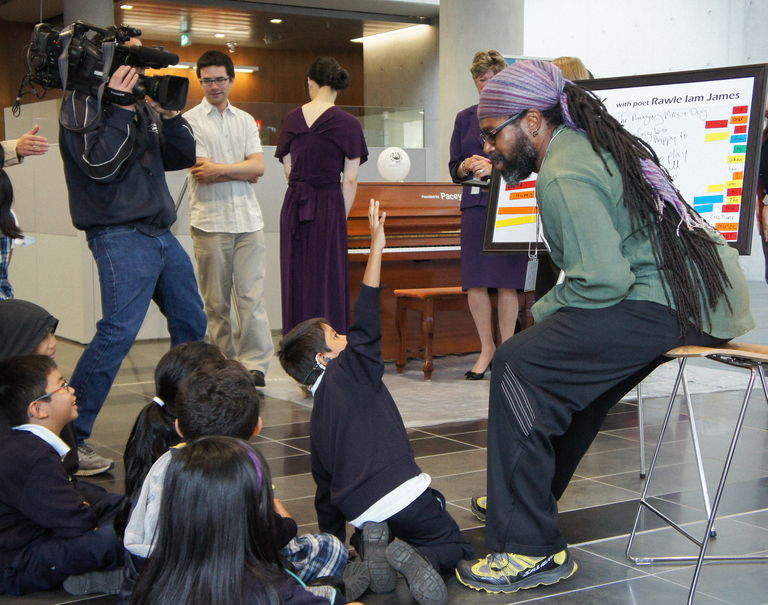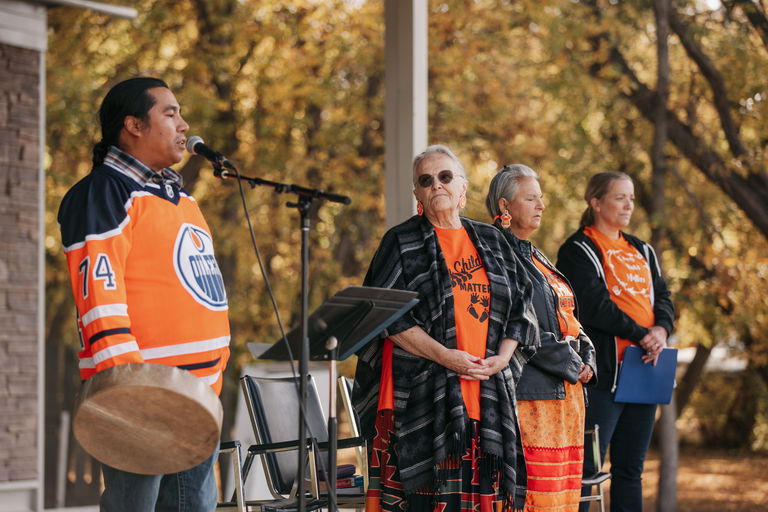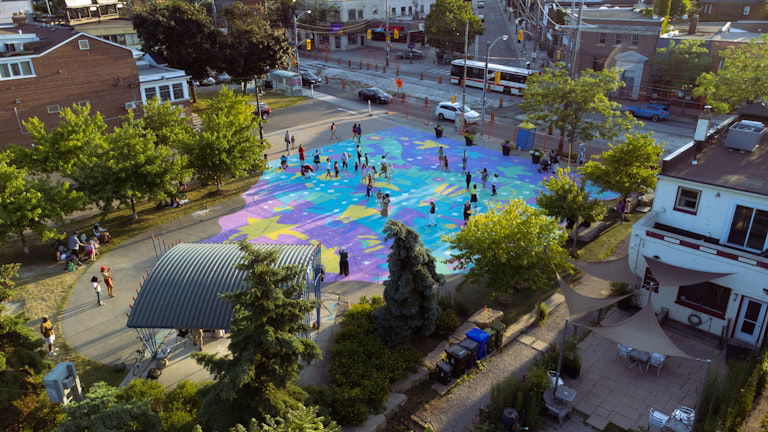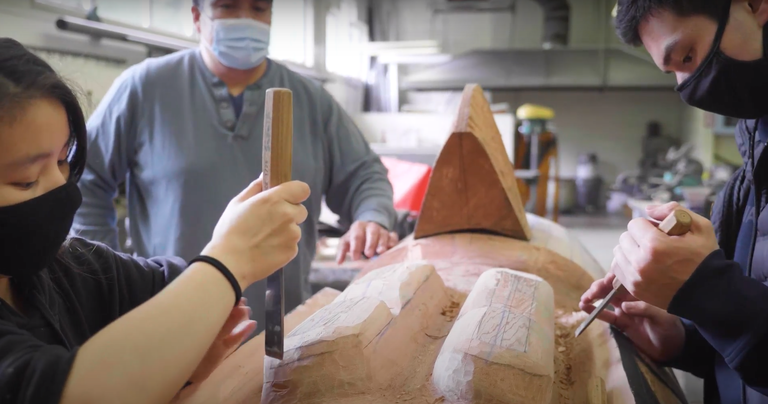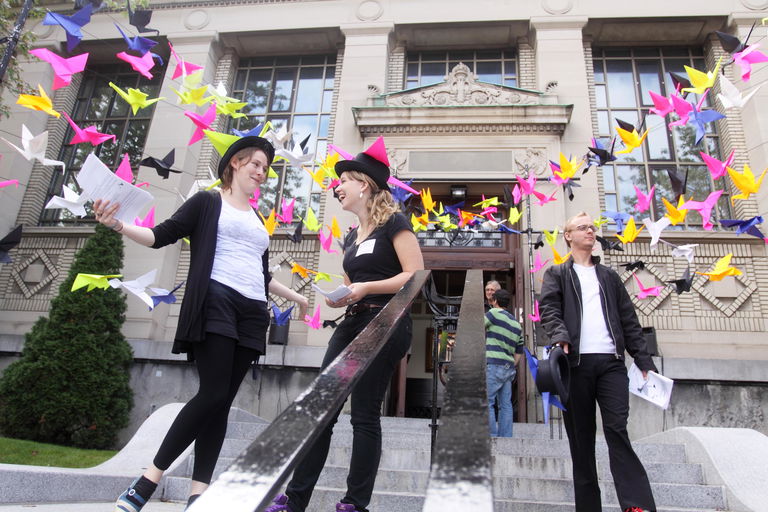
An Inspired Legacy: The Evolution of Les Journées de la Culture
Culture Days
Jan 9, 2020
Launched in 1997, Les Journées de la Culture were created to democratize and build recognition for arts and culture in Quebec. Since their first year, the Journées have known a great deal of success in terms of participation. Today, more than 3,000 free and interactive events are organized annually by cultural and artistic organizations in more than 350 cities and towns across Quebec. The Journées are organized by Culture Pour Tous, a not-for-profit organization with a mission to have arts and culture recognized as essential factors in individual and collective development through educational programs that favour citizen participation.
Their participatory and accessible approach to arts engagement became the inspiration and model for the creation of Culture Days across the rest of Canada in 2010. More than contributing ideas and inspiration, Culture Pour Tous also played a supporting role in the new initiative’s early years.
To mark Culture Days’ 10th anniversary, Executive Director Aubrey Reeves sat down with Louise Sicuro, President and Director of Culture Pour Tous. They talked about the origins of Les Journées de la Culture, of the evolution of the two initiatives and the ways in which they join forces to encourage the appreciation of arts and culture together across Canada.
The following interview has been edited for length and flow.
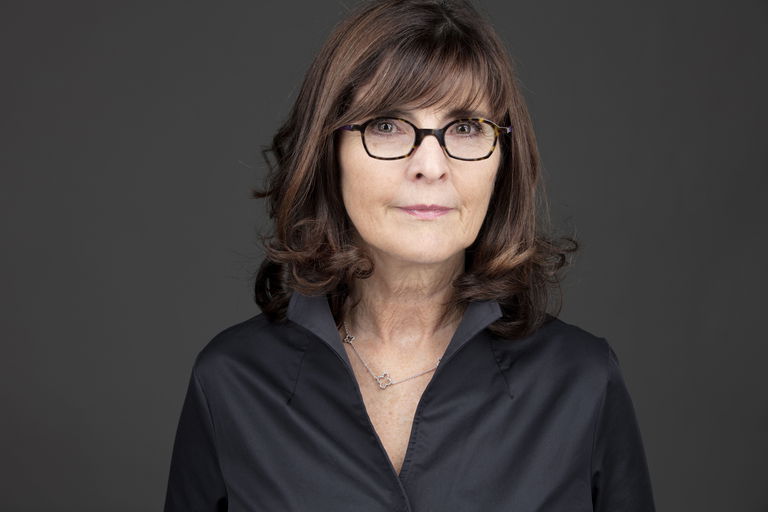
What was the initial reaction within the arts and culture community to the concept of Journées de la culture?
The first reactions from the national disciplinary associations we gathered together were tainted by skepticism. Some only saw the project as having a marketing objective, others as a way to promote exclusively professional artists. A few of us imagined it as a project anchored in local communities with the potential to influence both citizens and elected officials.
It is interesting because the reaction in Ontario was similar. Using the model of Quebec’s Journées de la Culture contributed to the acceptance of the Culture Days project.
Yes! A first draft for a similar project was developed by a few institutions’ CEOs during the Canadian Arts Summit, with the idea that it would be organized in April. A series of discussions and consultations followed and led to the conclusion that the project’s dates should be aligned with the Journées’ dates, which fall on the last Friday of September and the subsequent weekend each year, as made official by the National Assembly of Quebec.
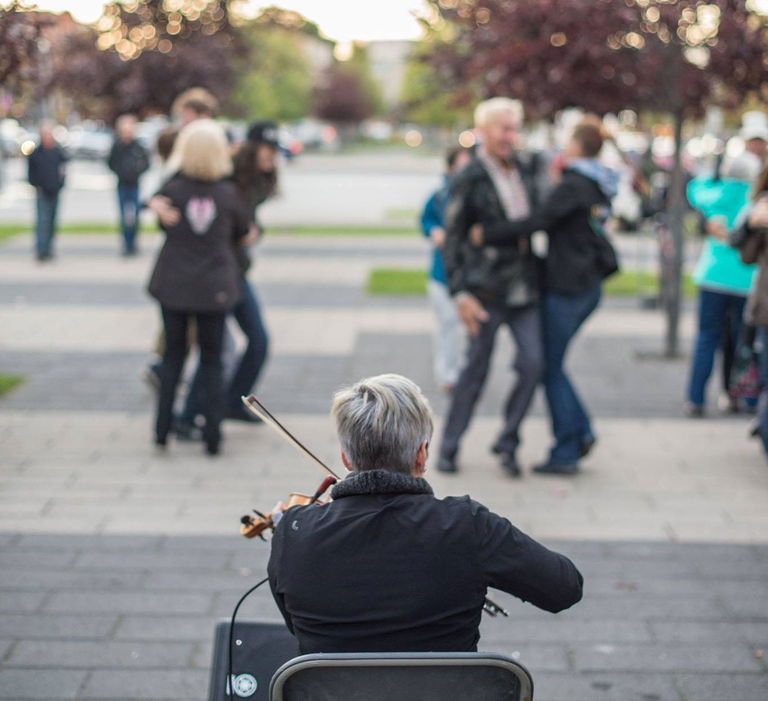
What happens now during Les Journées?
The basic concept of the Journées de la Culture has remained the same since the beginning. Events are organized on a voluntary basis by organizers from the cultural, municipal, school and business sectors. They must be free and encourage interactivity with the creative process.
Deeply rooted in Quebec’s event calendar for 23 years, Les Journées de la Culture are well known and benefit from the support of media across the province. Every year, we seek out collaboration with celebrities. In 2019, for example, our ambassadors were comedian Marie-Soleil Dion and writer and member of the French Academy Dany Laferrière, who together did more than 60 interviews with media.
For our 20th anniversary, we created a project titled ‘A song at school’ for elementary school teachers and their students. Each year since then, we invite a singer-songwriter to compose an original song on the theme of culture, which is learned and performed by thousands of students in Quebec, and in francophone schools in other provinces, at the beginning of the school year. Additional pedagogical material is also distributed to teachers who register for the event. This year, Inuit artist Elisapie wrote a beautiful song in French, in which she included the chorus and one of the verses in Inuktitut. ‘Nous avons marché’ was sung during Les Journées de la Culture by 150,000 students in 900 schools across Canada.
What impact do you think Les Journées have had on the public perception of arts and culture in Quebec? Do you think that it has changed the way government considers the role of culture?
I have to say, quite humbly, that Les Journées de la Culture has without a doubt shined a light on the importance of arts and culture in our lives. As a three-day event it does not solve everything, but it helps celebrate and spread the word about cultural life across Quebec. Other organizations, like Les Arts et le Ville, also influenced the set-up of cultural policies in municipalities, helped by financial support from the Ministry of Culture and Communications.
In 2017, I had the chance to contribute to the development of the new Cultural Policy of Quebec titled ‘Partout la Culture’, the first principle of which is to “contribute to individual and collective development through culture”.
Across the world, scientific research shows the impact that arts and culture have on well-being, whether with hospital patients, seniors, school students or workers. Everything that contributes to people expressing themselves, creating or enjoying themselves brings benefits that improve their quality of life. Culture goes well beyond attending artistic events. It is the foundation from which individuals develop. It is in that spirit that we have operated throughout the years, by putting in place strategies of cultural mediation that encourage participation by citizens.
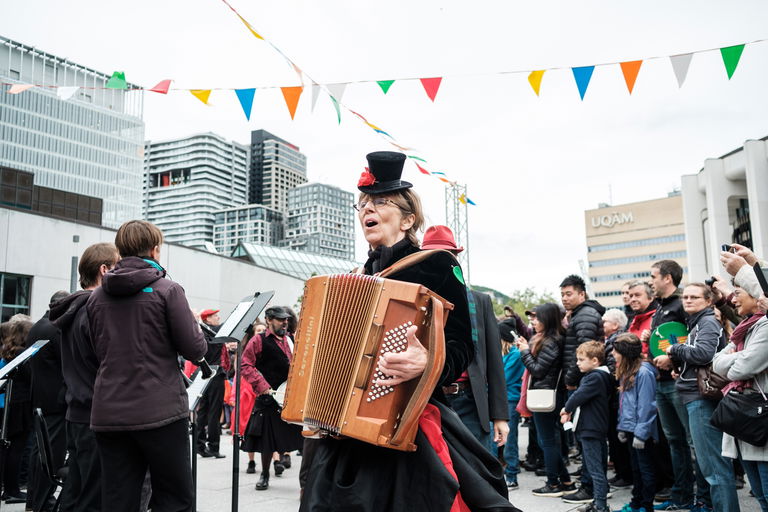
Did seeing your model adapted to the rest of Canada help in any way? Did you learn anything?
First of all, we have a certain pride that it now exists on a Canada-wide scale, for 10 years already. Yes, we have learned some things. I have found that at Culture Days, the community side is very important. In Quebec, it took 5 or 6 years before we started inviting municipalities to participate. Some people did not want to integrate municipalities within the frame of Les Journées de la Culture because they thought it would undermine its professional value. I believe that we need to value the entire spectrum within which a society’s cultural life develops.
Yes, that is a phrase that I use a lot to describe the Culture Days participants, “a spectrum of cultural creators”.
Yes! When we only see the silos and say: “here are the professional arts, here is research, here is education…” it cannot work because in fact it is a chain and we must solidify each link.
Finally, one last question for you, where do you see Les Journées going in the future?
We are preparing for the 25th anniversary in 2021. We would like Les Journées de la Culture to be considered a responsibility of other sectors, like the health or business sectors. The culture sector as well as the municipalities have been contributing since the beginning. We have made some great progress with the school sector, although we must encourage more integration of the cultural dimension into teaching. A large part of the work there has been done. However, we must not give up, especially in today’s context where the question of sustainable development is more crucial than ever. Culture plays a fundamental role in this.

